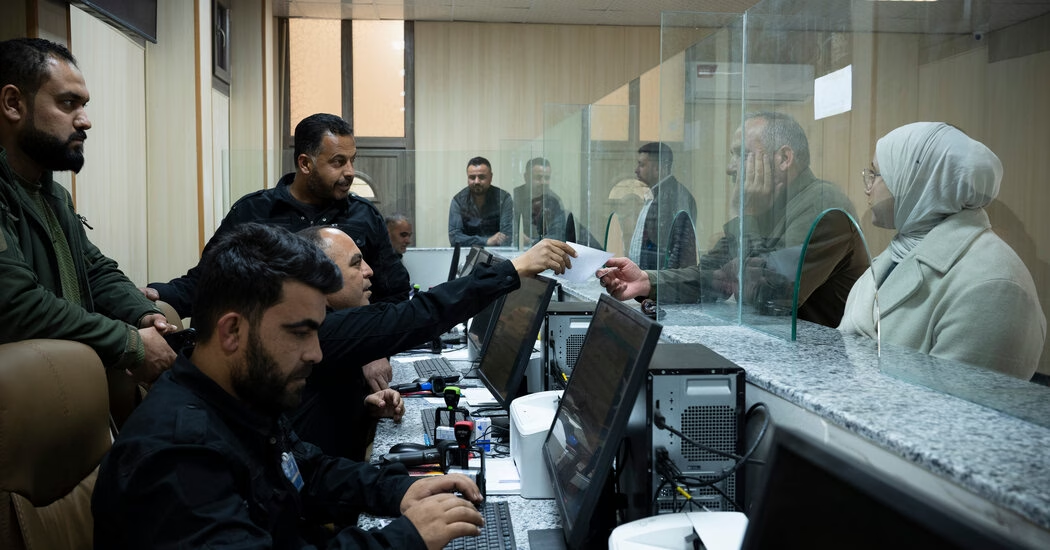When Kazem Togan recently returned to Syria for the first time in 12 years, he inquired if he “had a name”, meaning if he was on wanted lists under the ousted Assad dictatorship. The passport control agent replied, with a smile, that he was wanted by branch 235, the intelligence branch. Togan, a former journalist for opposition Syrian media, expressed his excitement, stating that it has become a routine for Syrians to ask if they are wanted. The dictator Bashar al-Assad and his father ruled Syria for over five decades through terror, naming those wanted by different regime branches. The wanted lists could be checked at airports, border crossings, or police stations, leading to the possibility of disappearing into the prison system. Now, those previously terrified by the prospect of a security file are openly inquiring and discussing their status. Joining the Intelligence Branch is seen as a badge of honor, proof of resistance against oppression. The wanted individuals could include anyone from protestors and armed rebels to those making political jokes or residing abroad for too long. Men were primarily targeted for evading military service and taking up arms against the regime, but women and children were also on the lists. Those caught faced torture, executions, and confinement in the notorious prison system. The fear of being wanted led millions to exile or hiding. Anti-government activists and rebel fighters adopted nom de guerres during the civil war to protect themselves and their families. MR. Togan recorded his encounter with the passport control agent and shared it on social media. He wondered what would happen if he had come to Syria before the regime’s fall. The new government inherited an entire bureaucracy, including databases and intelligence files, which could be used for accountability and justice. The Interior Ministry official mentioned that more than eight million Syrians were wanted by the old regime, but most of these wanted statuses have been forgiven. Previous civil court judgments and criminal charges will not be dismissed, he stated. Tamer Turkmane, who recently returned to Syria, had his past status checked when leaving the country through the border with Lebanon. The passport control officer inquired about his activities that led to multiple regime branches’ interest in him. Turkmane, who founded the Syrian Revolution Archive, was proud and had his file photo taken to share on Instagram. At the immigration and passport ministry in Aleppo, men and women waited in line to renew passports, replace lost ID cards, and check their previous security status. Ahmad Raheem, a 15-year employee, spends his days checking individuals. A man wanted for evading military duty was informed that he had no charges now. Raheem explained that they don’t offer information about being wanted unless asked to avoid worrying people. Fuad Sayed Issa, a Syria-based charity founder, was informed at the Damascus airport that he was wanted by several security branches for evading military service and immigration control. These charges bring amusement to Issa, who was part of an early warning network for rebel-held territory.
Source: https://www.nytimes.com/2025/03/20/world/middleeast/in-syria-being-wanted-went-from-something-to-fear-to-a-badge-of-honor.html





